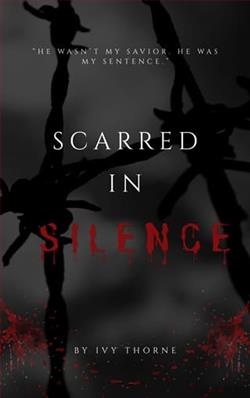Page 82 of The Paid Companion
“No. I expect my husband took it to one of the pawnshops. Probably got very little for it, too.” Mrs. Glentworth’s jaw trembled with outrage. “Not that I saw any of the money, mind you. He never even bothered to tell me that he had sold it.”
Arthur looked at her. “Do you happen to know when he pawned it?”
“No. It must have been shortly before he managed to kill himself with that electricity machine.” Mrs. Glentworth used the mangled handkerchief to blot up a stray tear or two. “Perhaps that very day. I seem to recall that he had it at breakfast that morning. He left the house to take his exercise and was gone for some time. That was no doubt when he went to find a dealer.”
“When did you notice that the snuffbox was gone?” Elenora asked.
“Not until that evening when I found his body. That afternoon I had gone out to pay a call on a friend who was ill. When I returned, my husband had already come home and locked himself in his laboratory for the day, as was his custom. He did not even bother to emerge for dinner.”
“That was not unusual?” Arthur asked.
“Not at all. When he got involved in one of his experiments he could spend hours in his laboratory. But at bedtime I knocked on the door to remind him to turn down the lamps when he came upstairs. When there was no answer I grew concerned. The door was locked, as I said. I had to get a key to open it. That was when I... when I...” She broke off and blew her nose.
“When you found his body,” Elenora completed gently.
“Yes. It was some time before my nerves recovered to the point where I noticed that his snuffbox was gone. Then I realized that he must have sold it that very day. Heaven only knows what he did with the money. It was certainly not in his pockets. Perhaps he decided to pay off one of his more pressing creditors.”
There was a short silence. Elenora exchanged another knowing glance with Arthur. Neither of them spoke.
“I never thought he’d part with that snuffbox, though,” Mrs. Glentworth said after a while. “He was very attached to it.”
“Was your husband alone in the house while you were out that afternoon?” Arthur asked.
“Yes. We have a maid, but she was not here that day. In fact, she is rarely here anymore. She has not been paid in some time, you see. I suspect that she is searching for another post.”
“I see,” Arthur said.
Mrs. Glentworth gazed around with a resigned air. “I shall have to sell this house, I suppose. It is my one asset. I can only pray that I will get enough for it to pay off my husband’s creditors.”
“What will you do after you sell the house?” Elenora inquired.
“I shall be obliged to move in with my sister and her husband. I detest them both and they feel the same way about me. They have very little money to spare. It will be a miserable life, but what else can I do?”
“I shall tell you what else you can do,” Elenora said crisply. “You may sell this house to St. Merryn. He will give you more than you will obtain if you try to sell it to someone else. In addition, he will allow you the use of it for the remainder of your life.”
Mrs. Glentworth gaped at her. “I beg your pardon?” She shot a quick, disbelieving glance at Arthur. “Why would his lordship want to purchase this house for more than it is worth?”
“Because you have been extremely helpful today, and he is happy to show his gratitude.” Elenora looked at Arthur. “Is that not correct, sir?”
Arthur raised his brows, but all he said was, “Of course.”
Mrs. Glentworth looked uncertainly at Arthur. “You will do such a thing merely because I answered your questions today?”
He smiled faintly. “I actually am quite grateful, madam. Which reminds me, I have one last question that I wish to ask.”
“Yes, certainly.” Hope and relief began to lighten Mrs. Glentworth’s drawn expression.”
“Do you recall the name of your husband’s third friend?”
“Lord Treyford.” Mrs. Glentworth frowned slightly. “I never met him, but my husband mentioned him frequently enough in the old days. Treyford is dead, though. He was killed many years ago while still a young man.”
“Do you know anything else about him?” Arthur pressed. “Was he married? Is there a widow I might consult? Any children?”
Mrs. Glentworth thought about that and then shook her head. “I do not believe so. In the early days my husband made several references to the fact that Treyford was too devoted to his researches to be bothered with the demands of a wife and family.” She sighed. “Indeed, I believe he was quite envious of Treyford’s freedom from such obligations.”
“Did your husband make any other comments about Treyford?” Arthur asked.
“He used to say that Lord Treyford was far and away the most brilliant of their little group. He once told me that if Treyford had lived, England might have had its second Newton.”















